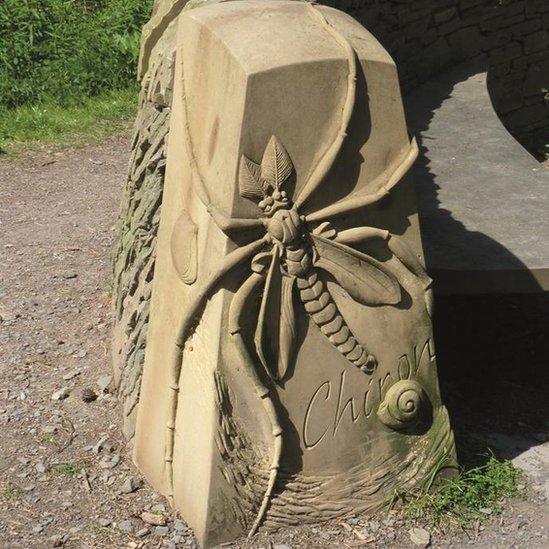Experts rush to huge midge swarm at Loch Leven
- Published
The non-biting midges do not feed as adults
Nature-lovers are being urged to go to Loch Leven in Perth and Kinross to see an unusually large swarm of midges that have emerged from the ground.
Experts said it was an "amazing" natural spectacle that would only last for a few days.
The non-biting midges or chironomids do not feed as adults and so are only mating while in the swarm.
They will then lay their eggs and, if the climate conditions are right, more will hatch again in three weeks' time.
Gus Routledge, of Scottish Natural Heritage, told the BBC Scotland news website, the mass emergence was even bigger than previous years.
'Fuelling the ecosystem'
"I think this is absolutely brilliant and people should come down to see it.
"It's an amazing spectacle to witness such a huge number of insects, especially when you think they are fuelling the rest of the ecosystem here.
"It's also brilliant seeing all the migrant birds that are swooping through them all to feed on them and loving it. It's a really good food supply for them.
"It is also great news for the trout as they are feeding on them as they land on the water.
"The dragonflies and damselflies will also be feeding off them."

A chironomid carving at Loch Leven
He added that Loch Leven has its own species of chironomid called cladontanypatrsus donmcbeani, which was discovered in 2000.
The path where the flies have hatched is about a 45-minute walk between the RSPB car park and Loch Leven's Larder.
Ashleigh Whiffin, National Museums of Scotland's assistant curator of entomology, said: "I would love to see this phenomenon so I am going to go there on Saturday.
"I've not seen this phenomenon before and I would urge others to see it too.
"They don't harm you as they are non-biting midges. Their sole purpose at this stage is to find a mate and reproduce."